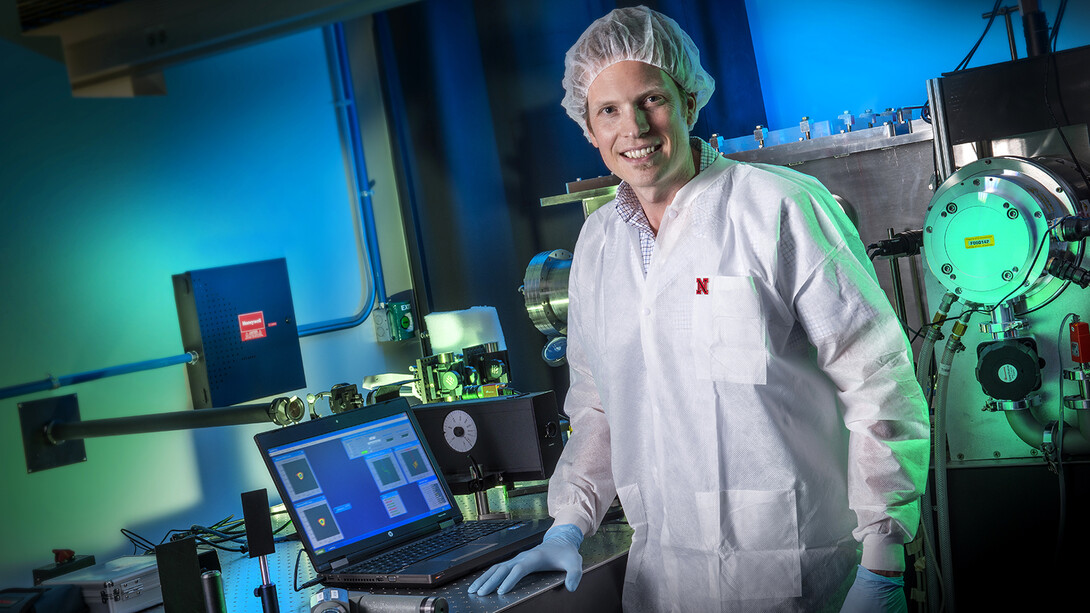
Nebraska’s Matthias Fuchs, associate professor of physics and astronomy, has been named a Kavli Fellow of the National Academy of Sciences.
The designation earned Fuchs an invitation to the 2022 U.S. Kavli Frontiers of Science Symposium, where he presented research in his area of expertise: ultrafast and high-field X-ray science. The symposium, held April 8-10 at the Arnold and Mabel Beckman Center of the National Academies of Sciences and Engineering in Irvine, California, brought together outstanding young scientists to discuss significant advances and opportunities in a broad range of disciplines.
Fuchs was among 39 Kavli Fellows selected by a committee of academy members. Fellows are recipients of major national fellowships and awards and have been identified as future leaders in science.
“The fellowship is a great honor and participating in the symposium was a fantastic opportunity,” Fuchs said. “The presentations were highly interesting and considerably broadened my scientific horizons. Equally interesting were the subsequent discussions, as everyone in the audience had such different backgrounds.”
At the symposium, Fuchs described how he uses high-power lasers to shrink the size of high-brightness X-ray sources from the kilometer scale to tabletop dimensions. The X-rays are generated with short enough pulses that they can be used to directly observe the motion of atoms. This enables Fuchs’ team to investigate the fundamental dynamics of materials on the molecular scale. The work has also paved the way for advanced imaging modalities that surpass what is currently possibly with laboratory-sized X-ray sources.
Fuchs is a leader in next-generation X-ray research. He is part of the Department of Physics and Astronomy’s Atomic, Molecular, Optical and Plasma Physics group, which is supported by the University of Nebraska’s Programs of Excellence initiative. He’s made significant contributions toward developing novel X-ray sources and investigating non-linear effects at X-ray wavelengths, dividing his efforts between competitively awarded use of national facilities and the university’s Extreme Light Laboratory.
He was lead author of a paper describing a first-of-its-kind experiment that enabled his team to observe one of the most fundamental interactions between X-rays and matter, which had completely unexpected results. In 2015, Fuchs received the Air Force’s Young Investigator Research Program award, which funds early career researchers with exceptional ability and promise for conducting basic research.
Fuchs’ research has received support from the National Science Foundation, the Department of Defense and the Department of Energy.
“Matthias has been an integral, and often driving, part of large collaborative grant proposals from the university’s AMOP group,” said Dan Claes, professor and department chair of physics and astronomy. “We see him, with his ability to work so effectively with UNL physics and engineering faculty, as a key figure in the development and expansion of our AMOP program.”
The Kavli Foundation, based in Oxnard, California, supports scientific research, honors scientific achievement and promotes public understanding of scientists and their work. The Kavli fellowship program is aimed at helping outstanding scientists learn about research at frontiers of fields other than their own, and helping participants develop a network of connections. There are now more than 6,100 members of the symposium’s alumni group, including 17 who have won Nobel Prizes and 277 who were elected to the National Academy of Sciences.







